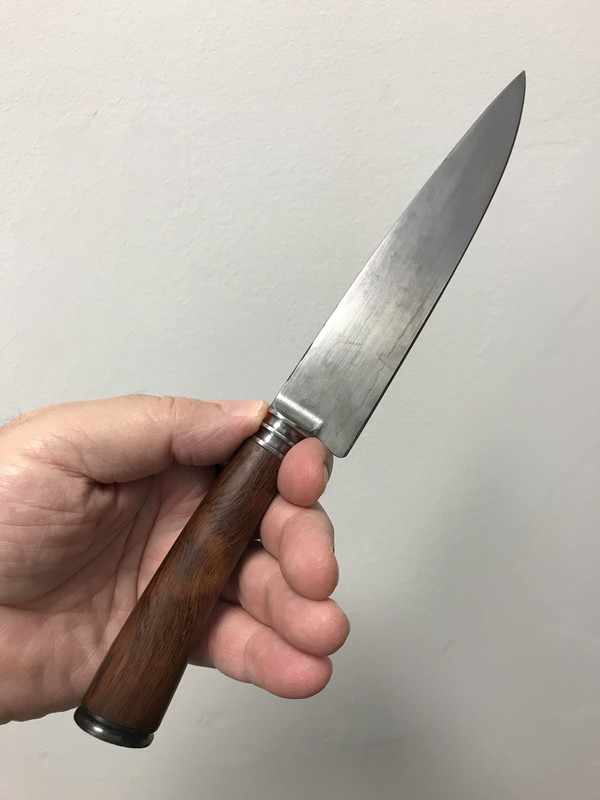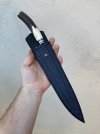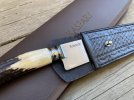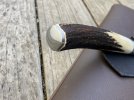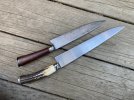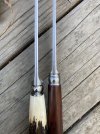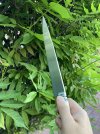LOL....A lot of assumptions made there.....you do realize that the root for all these different words are permutations of the same word from Roman Latin, right? That language existed for centuries before the Analusian Arabic dialect came into use. Words and pronunciations have a way of changing over the years due to non-native speakers misspelling or mispronouncing them or not hearing the word correctly, as has been already pointed out with the words facon and facao. I find it hard to believe that the word facon just happened to come into use after the Spanish gauchos starting encountering the Portuguese...
Another thing you aren't taking into account is that Spanish and Portuguese dialects spoken South American at the time are not the same as the European languages, so what the European scholars say doesn't mean all that much....If it was at all like some of the current Spanish dialects that have developed in the Western Hemisphere the is a good chance that a person that came from Spain would have a hard time understanding the dialects spoken in some parts of South America.
There are several mistakes here, but also a few correct remarks, so I'll try to break it down. By the way, though I don't wish to pull an "argument from authority," I should point out that I have a Ph.D. in linguistics and did my dissertation, precisely, on Old Spanish. This is just to say: I
kinda know what I'm talking about.
1. Yes, there are several assumptions in my remarks, reflecting centuries of scholarship in Romance linguistics and philology. For example, the
f > h has been shown to have happened pretty much across the board from Latin to Spanish in pre-voiced positions (i.e., all positions before a sound that would involve vibration of the vocal cords, as is always the case with vowels; e.g.,
halcón,
herrero, hilo, etc.). There are very few exceptions, corresponding to "cultisms" (i.e., Latin words that re-entered the Spanish lexicon via borrowing,
after the relevant phonetic changes took place; e.g.,
fin). And there is absolutely no evidence that
faca is a "cultism"; for one, if it were, we'd expect it to retain more of the phonetic characteristics of its Latin source, such as the
l sound. You can read more about this
here, or in any textbook dealing at some length with the historical development of Spanish (e.g., Hualde et al.'s
Introducción a la lingüística hispánica).
2. Correct, the Spanish language existed before Andalusi Arabic was a thing. However, the Muslim occupation of the Iberian Peninsula
radically reshaped both the Spanish and Portuguese (and also Galician) lexicon. Moreover, there exist absolutely no documented examples of
faca or
facón in early Old Spanish (leaving aside variants of the third person singular conjugation of the verb
façer, which one sometimes finds with a
c instead of
g), suggesting that the word developed after the Muslim invasion.
3. You're also correct that it's not at all clear that
facón "just happened to come into use after the Spanish gauchos starting encountering the Portuguese." I said exactly that in post #899: "It's not at all obvious to me that the term was simply a phonetic adaptation of Port.
facão as used by Portuguese-speaking gauchos." Not sure exactly who you're arguing with here.
4. I did take into account the differences between Latin American and European Spanish. However, these differences do absolutely nothing for your argument. The phonetic changes that took place in the transition from Latin into Spanish are also attested in Latin American varieties -- how could they not, given that Spanish came to the Americas centuries later? -- so the same constraints apply. Moreover, I already showed that the word
faca 'knife' not only predates the gauchos, but in fact was already in use in Spain (as shown by Covarrubias's dictionary) before it was first attested in the Americas.
5. The remark that "European scholars say doesn't mean all that much," just because European and Latin American Spanish are not identical, is both incorrect and irrelevant. It's incorrect because, as I already pointed out, the bulk of the phonetic changes that came to define Spanish happened before the importation of Spanish into the Americas, and, since the 19th century, there have been countless European scholars doing field linguistic and philological research in this continent. And it's irrelevant because several of the points I'm making here have been made by Latin American scholars too. What matters is not a scholar's country of origin, but his data.
6. If you don't like the Andalusi Arabic hypothesis, in fact you're not alone. Joan Coromines, for example, in his monumental
Diccionario crítico etimológico de la lengua castellana, openly challenges this hypothesis, and with good arguments. According to him, it's more likely that the word came about as a variant of
faca 'small horse' (which in turn is a variant of
jaca) by way of metaphorical extension. And there are other hypotheses entertained by a number of scholars -- none of which, however, claims the word to have derived from Lat.
falciōnem, for which there isn't a shred of evidence (while there's plenty of evidence to the contrary, in particular in the phonetic evolution of Latin roots in the development Spanish).
Cheers.

